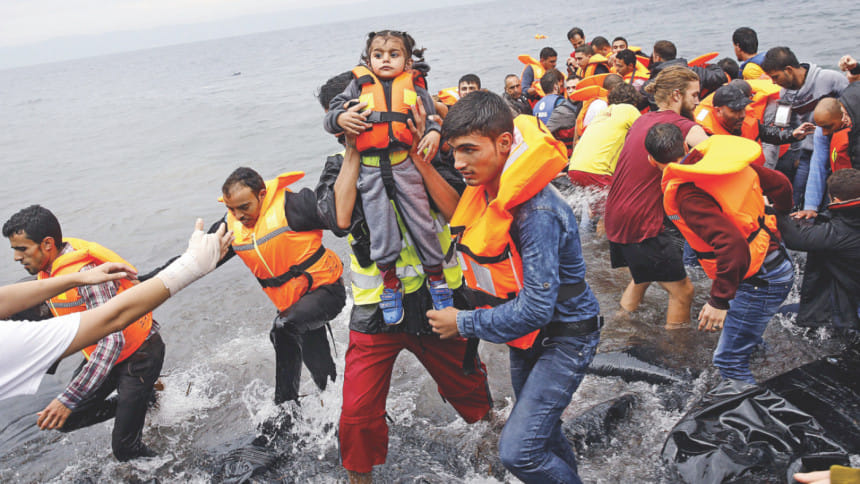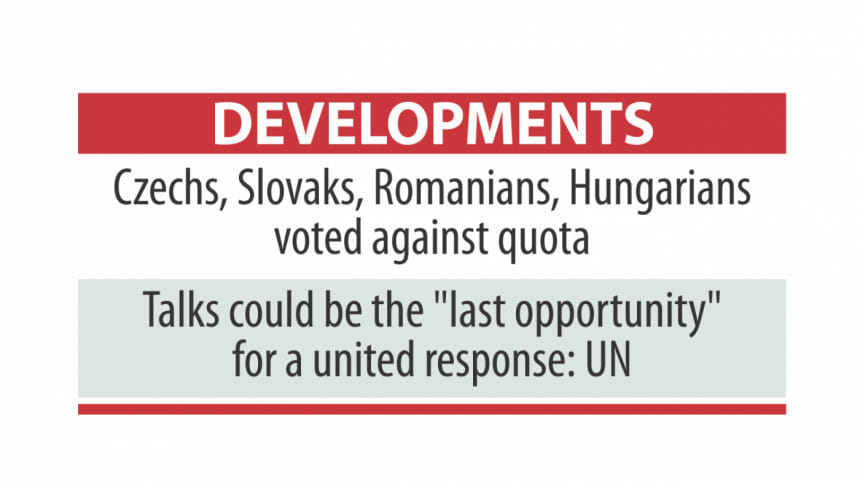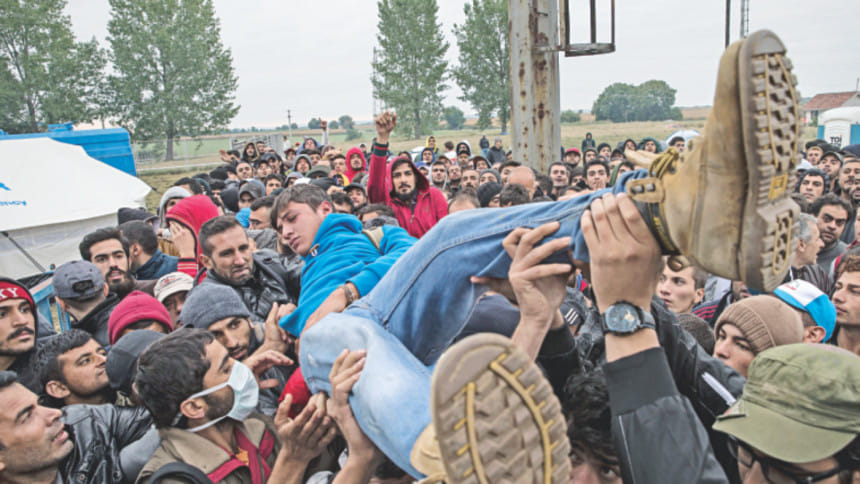EU relocation plan voted in

European interior ministers yesterday agreed a deal to relocate 120,000 migrants across the continent in a vote passed by a significant majority.
Under the plan, migrants will be moved from Italy, Greece and Hungary to other countries in the EU. Romania, the Czech Republic, Slovakia and Hungary voted against accepting mandatory quotas, reports BBC.
But a large majority of EU member states backed the plan, which will take effect over the next two years. Finland was the only country of the EU's 28 members to abstain from the vote. Poland, who had opposed the proposal, voted for it.
Earlier, the UN and other international organisations warned it was the "last chance" for increasingly overwhelmed European states to agree on how to cope with the tide of people fleeing conflict in countries like Syria, Afghanistan.
Luxembourg Foreign Minister Jean Asselborn, who is chairing the meeting, said: "We have a text on the table which should deliver an agreement. It is very balanced. I think it will have a good influence on all the delegations so we can reach a result this evening."

"I want to confirm that both the interior minister and myself... will unequivocally reject any effort to introduce a permanent mechanism of refugee redistribution," Czech Prime Minister Sobotka earlier told reporters in Prague.
"We also reject the introduction of quotas," he added. The ministers are trying to reach a deal that could be ratified by European Union leaders at a crisis summit today, which will focus on wider issues of strengthening the bloc's external borders.
German Interior Minister Thomas de Maziere, whose country is set to take in around one million asylum seekers this year, earlier said he was "optimistic" that they could reach a deal but warned that the talks would be difficult.

Croatian Prime Minister Zoran Milanovic urged Serbia yesterday to restart directing migrants to Hungary and Romania to help ease the burden on his own country, reports AFP.
Nearly half a million people fleeing war and poverty, two-fifths of them from Syria, have crossed the Mediterranean this year to reach Europe, overwhelming the EU's southern states and plunging them into furious rows over border controls.

 For all latest news, follow The Daily Star's Google News channel.
For all latest news, follow The Daily Star's Google News channel. 



Comments